Special Report
14 Presidents From Around the World Who Have Already Been Impeached
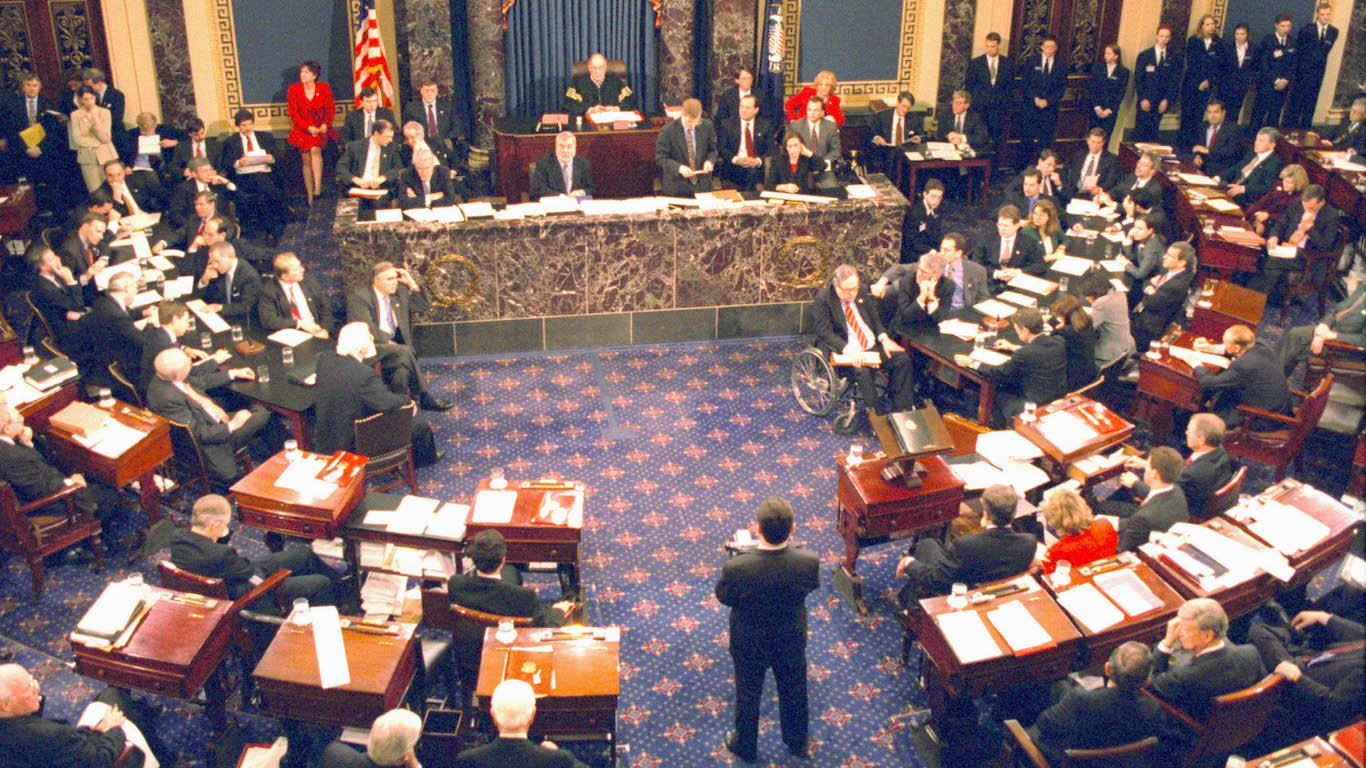
Published:
Last Updated:

President Trump is currently the subject of a controversial impeachment inquiry launched by the House of Representatives over charges that he asked a foreign government to target one of his political rivals. In reading about the case, we are often reminded that two previous American presidents — Andrew Johnson and Bill Clinton — have been impeached but that neither was convicted by the Senate and both retained their positions A third American leader, Richard Nixon, was threatened with impeachment, but resigned before any action could be taken.
In America, impeachment is a three-part process: investigation (usually but not necessarily by the House Judiciary Committee); passage of a formal complaint by the house, itself constituting impeachment; and finally conviction by the Senate, by a two-thirds majority. Obviously, the success of these stages will depend in part on how the target of the proceedings is viewed by both the House and Senate. These are the presidents with the best and worst relationship with Congress.
It is worth remembering, though, that impeachment is not exclusively an American process. A number of other world leaders — including a dozen non-American presidents — have been impeached in recent years.
Click here to see the 14 presidents from around the world who have already been impeached
The concept of impeachment dates back to England in the 14th century. The British Parliament seated in 1376 was known as the Good Parliament, because it prosecuted — and impeached — corrupt ministers of the king. The so-called Wonderful Parliament of 1386 impeached the Lord Chancellor who served under Richard II, and the 1388 Merciless Parliament condemned the Lord Chancellor and other royal officials to death.
The worst that most presidents have to fear from impeachment today is dismissal from office. That’s by no means always a given, even for those chief executives, like Andrew Johnson, who are not well considered in retrospect. See where various former leaders of our nation fall when historians rank every president.
Though impeachment can obviously be a political weapon by which the party in power unseats its opponents, it is also a valuable tool allowing elected legislative bodies to combat abuses on the part of the leaders of their countries.
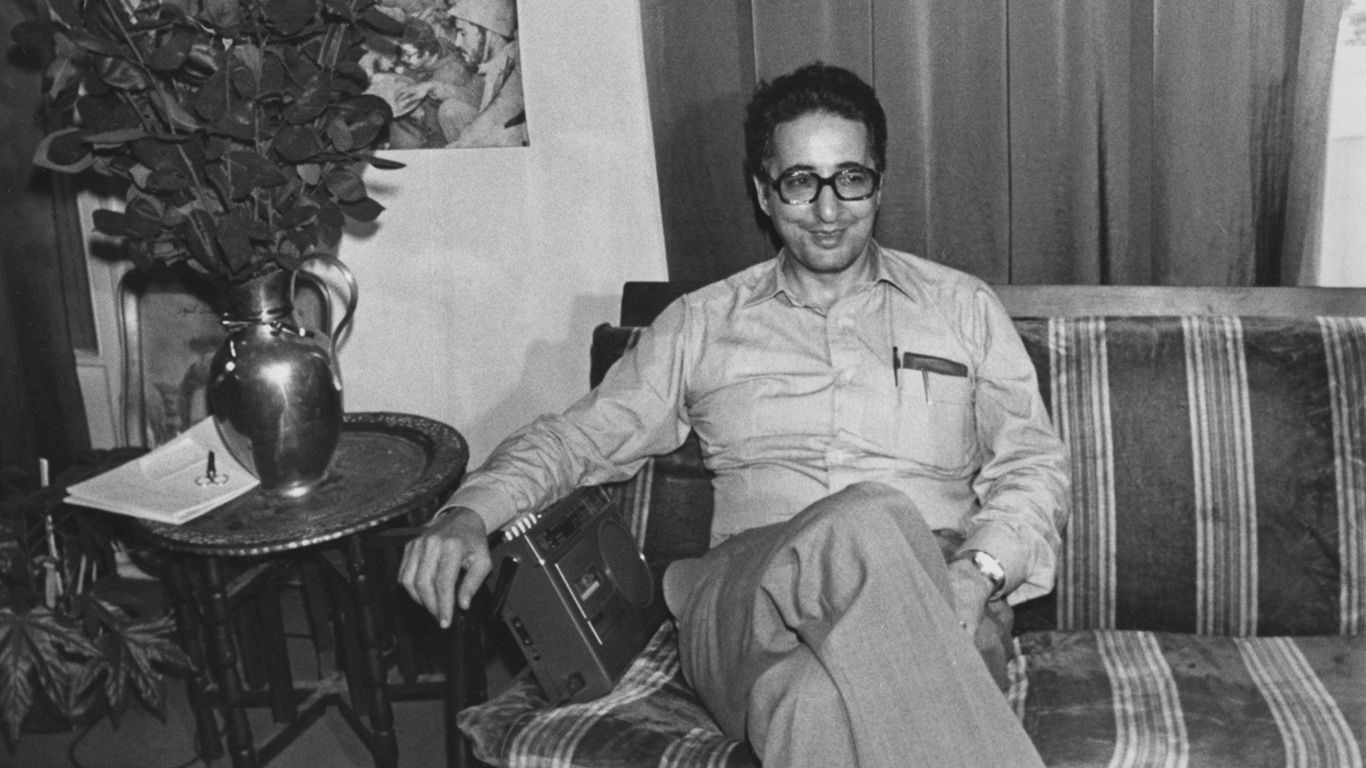
President: Abolhassan Banisadr
> Country: Iran
> Date impeached: June 21, 1981
> Removed from office? Yes
Banisadr was the first president of the post-revolution Islamic Republic of Iran. The Irani parliament was angered by his opposition to the taking of American hostages at the U.S. embassy in Tehran, and the fact that he had complained to the Ayatollah Khomeini about the incompetence of some government ministers. After parliament impeached him, the Ayatollah ordered him arrested, but he fled to France, avoiding capture.
[in-text-ad]

President: Bill Clinton
> Country: United States of America
> Date impeached: December 19, 1998
> Removed from office? No
After investigating Clinton for a number of financial and personal offenses, independent counsel Kenneth Starr submitted a report to the House Judiciary Committee claiming that he had proof of 11 impeachable offenses. The House agreed to accept two of them, both having to do with Clinton’s sexual relationship with former White House intern Monica Lewinsky and his subsequent statements about that relationship under oath. The House voted to impeach him but the Senate was unable to muster the required two-thirds majority to convict him, and he served out his term.
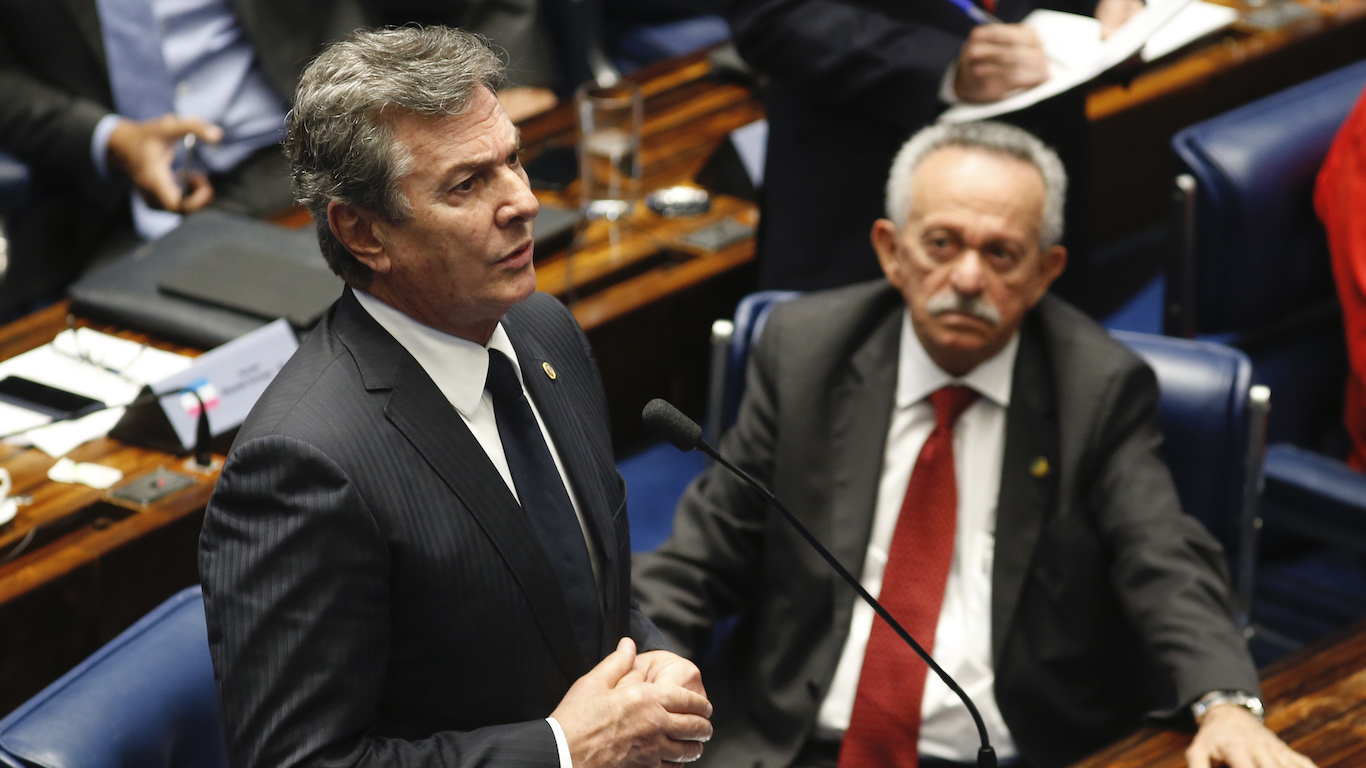
President: Fernando de Collor de Mello
> Country: Brazil
> Date impeached: September 30, 1992
> Removed from office? Yes
One of two Brazilian chief executives to be impeached in the past 27 years (see Dilma Vana Rousseff, below), de Mello was criticized for failing to improve Brazil’s dire economic situation, and then accused of corruption. He was impeached by a margin of 441 to 38 in the lower house of Brazil’s congress. He resigned three months later as his trial in the Brazilian senate commenced.
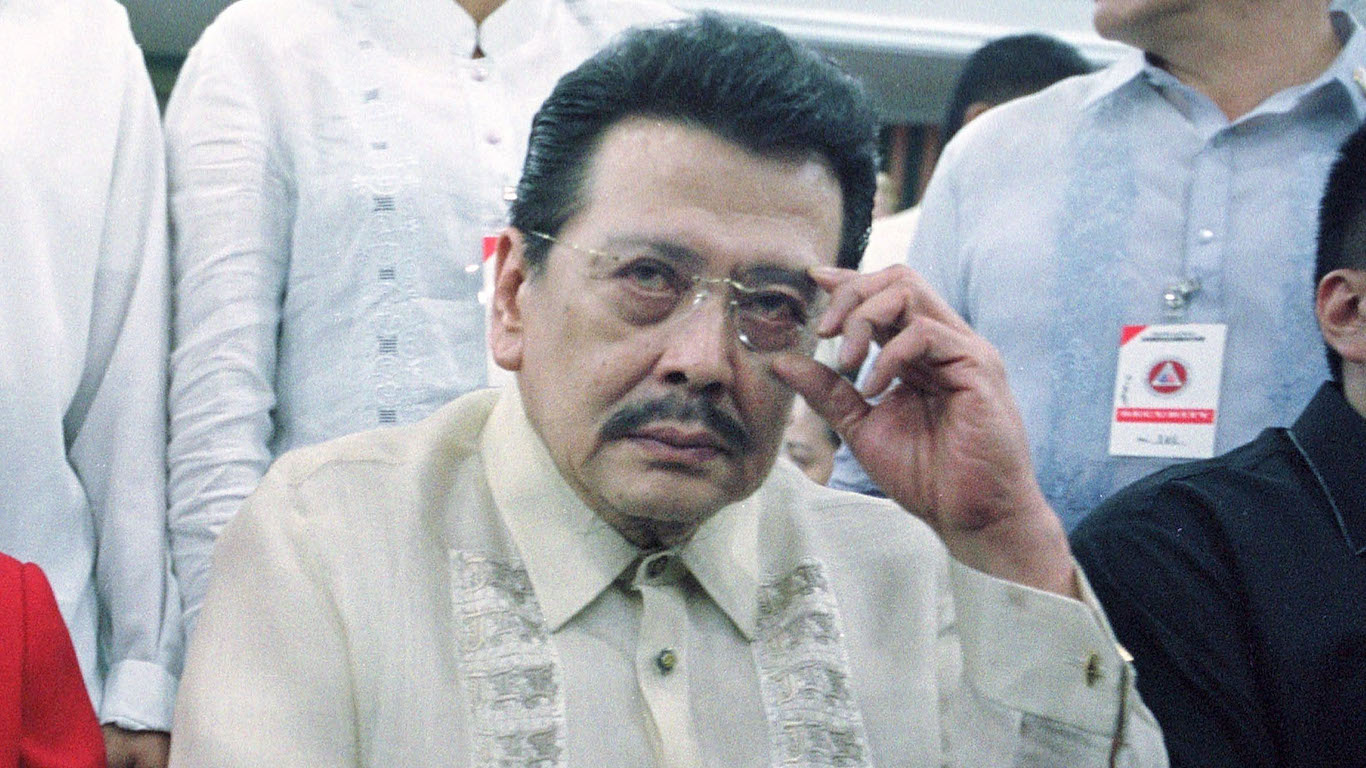
President: Joseph Estrada
> Country: The Philippines
> Date impeached: November 13, 2000
> Removed from office? Yes
A well-known actor in his native country, Estrada won election by a landslide in 1998. Two years later, however, he was charged with taking in as much as $12 million in illegal kickbacks. Secret bank accounts were subsequently discovered, and some sources estimated that the amount might have been as high as $60 million, but Estrada won a court battle to keep the records sealed. He was initially acquitted in impeachment proceedings, but public outcry caused him to resign.
[in-text-ad-2]

President: Alberto Fujimori
> Country: Peru
> Date impeached: November 21, 2000
> Removed from office? Yes
Though he won praise for his economic policies and his opposition to communist rebels, Fujimori was accused of embezzling government funds and committing war crimes against the insurgents. In 2000, as allegations mounted, he fled to Japan and faxed back his resignation. The Peruvian government refused to accept it, and instead impeached him on grounds of “permanent moral incapacity.” He was extradited to Peru from Chile in 2007, and convicted of numerous offenses. He was pardoned in 2017, but the pardon was later overturned and he is currently in jail.
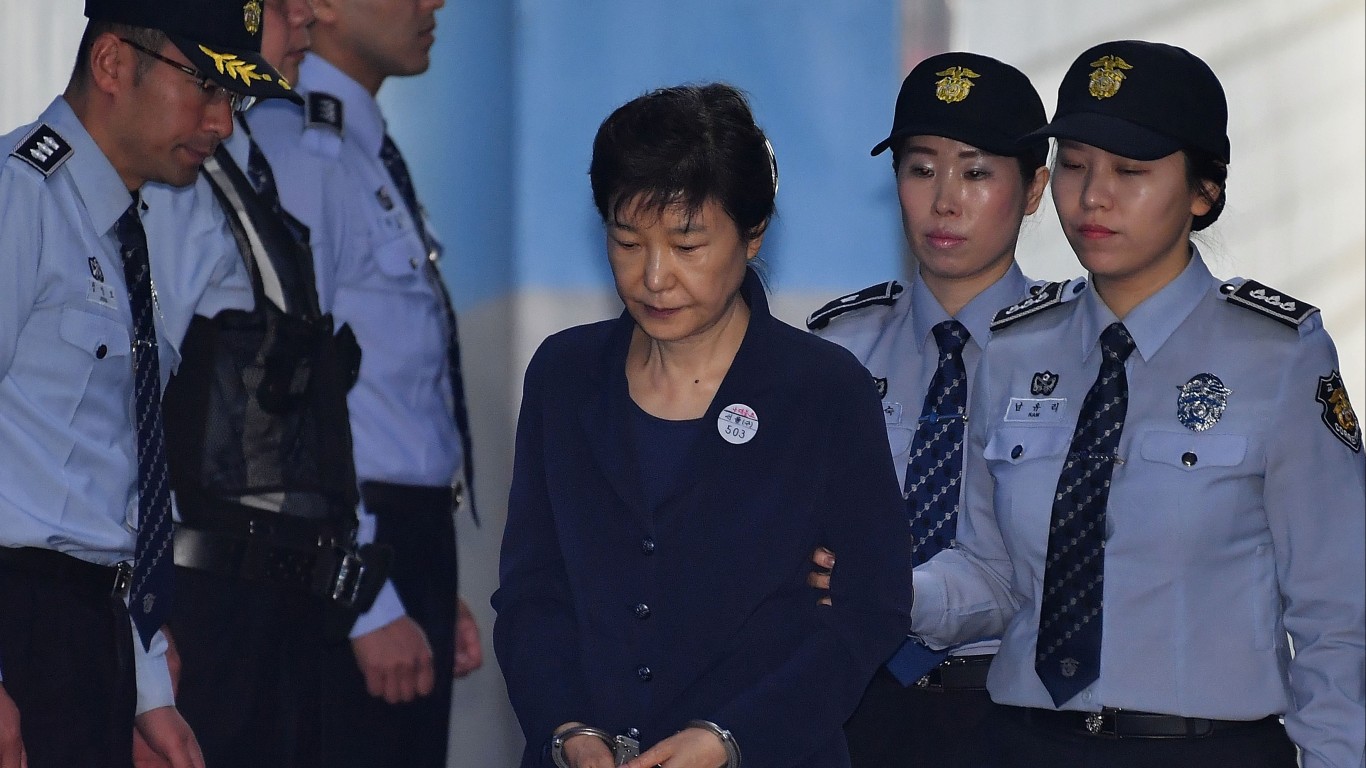
President: Park Geun-hye
> Country: South Korea
> Date impeached: March 10, 2017
> Removed from office? Yes
The first female president of her country, Guen-hye was targeted for impeachment after reports came out linking one of her aides to financial misdeeds. In addition, the aide was the daughter of a cult leader, and was said to influence Guen-hye’s decisions in an inappropriate way. Guen-hye was impeached and ousted for “acts that violated the Constitution and laws.” The following year she was sentenced to 24 years in prison for bribery and other offenses.
[in-text-ad]
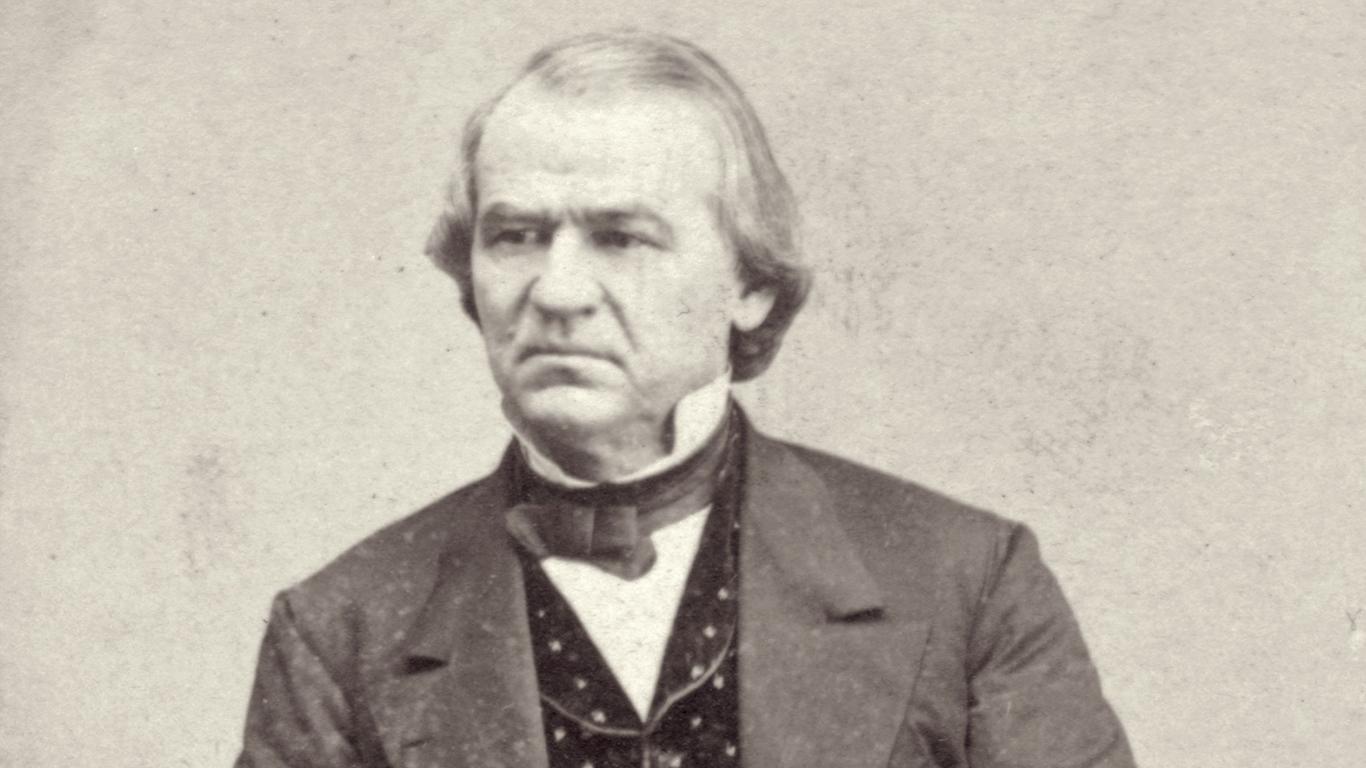
President: Andrew Johnson
> Country: United States of America
> Date impeached: February 24, 1868
> Removed from office? No
The 17th president of the United States clashed repeatedly with Congress in the years following the Civil War, culminating with his veto of legislation that would have protected the rights of newly freed slaves. Furious, the House of Representatives voted to impeach him. Even though his foes in the Republican Party had more than enough Senate seats to convict him, many of them supported his policies, so the required two-thirds majority was not attained and Johnson remained in office.
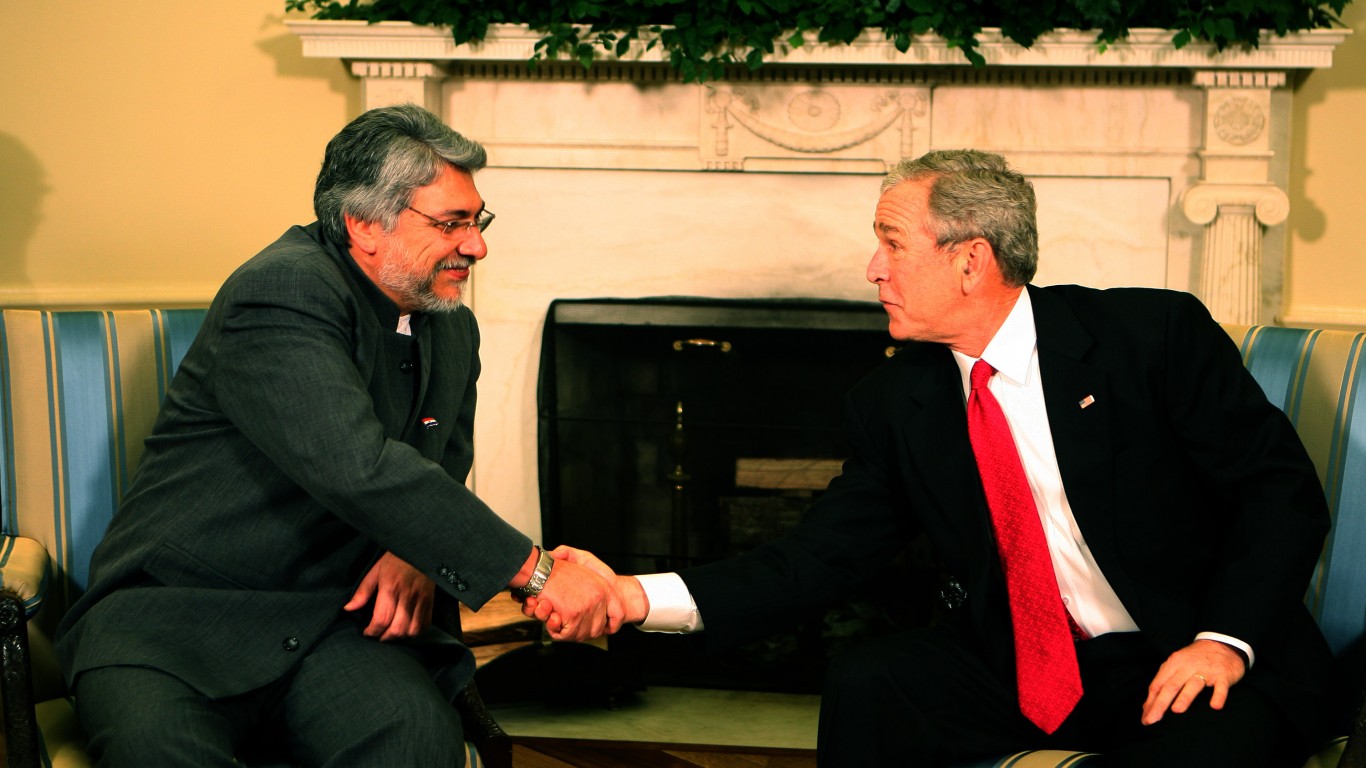
President: Fernando Lugo
> Country: Paraguay
> Date impeached: June 22, 2012
> Removed from office? Yes
A former Catholic priest whose election marked the first peaceful transition of power in Paraguay in nearly two centuries and ended decades of power by the right-wing Colorado Party, Lugo promised to make life better for his country’s poor. After clashes between farmers and the police left at least 17 people dead, however, members of congress from both the Colorado Party the rival Liberal Party, advanced a motion to impeach Lugo, accusing him of a “poor performance” during the clashes.
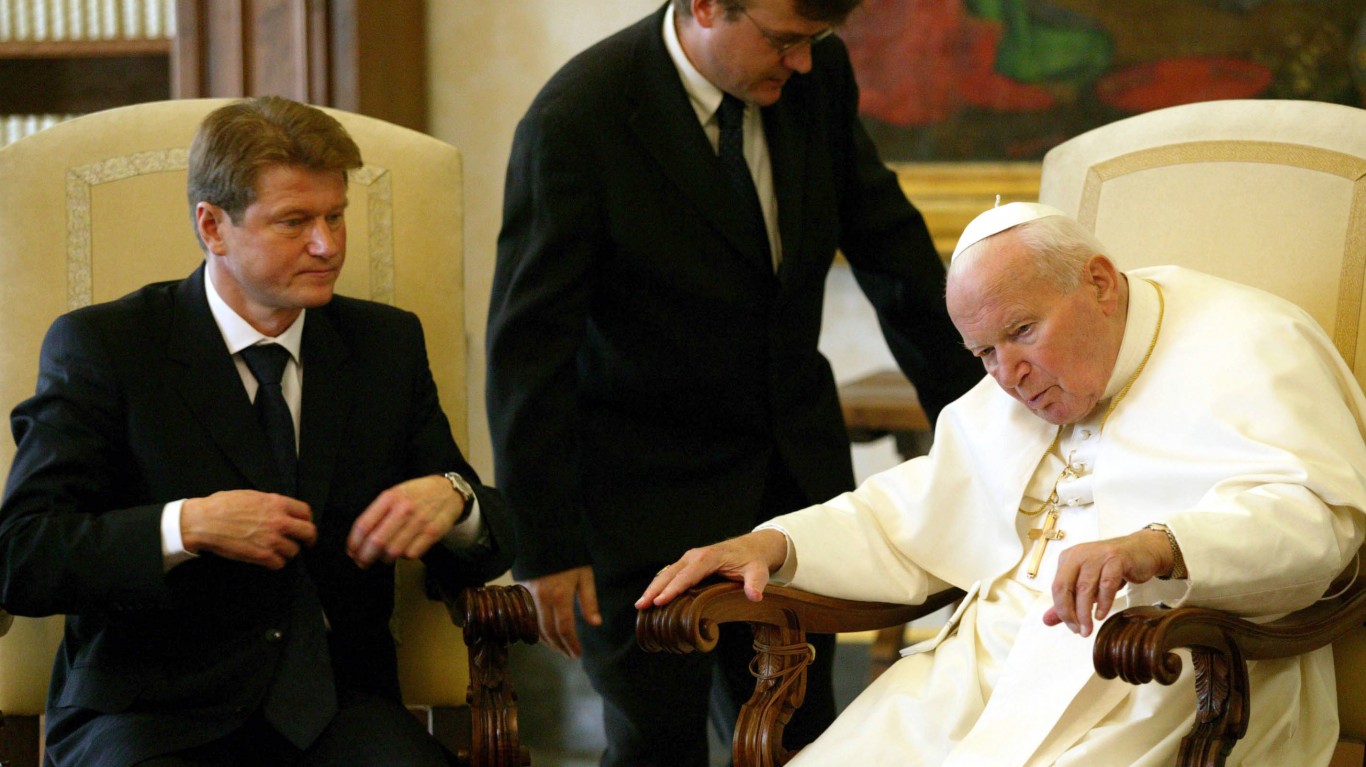
President: Rolandas Paksas
> Country: Lithuania
> Date impeached: April 6, 2004
> Removed from office? Yes
Though he established himself as a neo-liberal reformer upon taking office in 2003, Paksas was subsequently accused of having ties to organized crime in Russia. He was also condemned for granting citizenship to a Russian entrepreneur following a reported $400,000 campaign donation. Parliament removed him less than 14 months after he took office.
[in-text-ad-2]
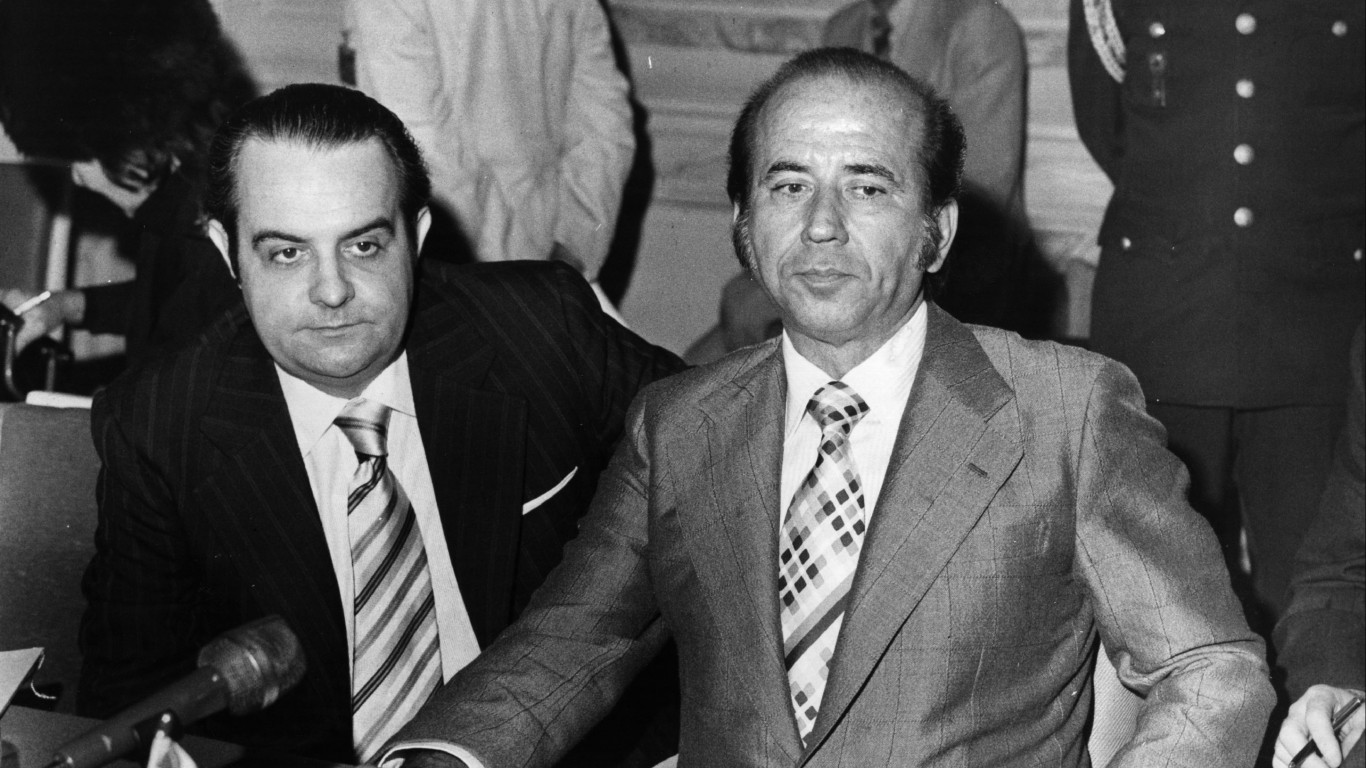
President: Carlos Andrés Pérez
> Country: Venezuela
> Date impeached: March 20, 1993
> Removed from office?
Second-term Venezuelan president Pérez survived two military coup attempts (one led by the country’s future socialist leader Hugo Chávez) but was impeached in 1993 and placed under house arrest for diverting public funds into private bank accounts in New York. He was released after two years and elected to the Senate, but he fled the country soon after.
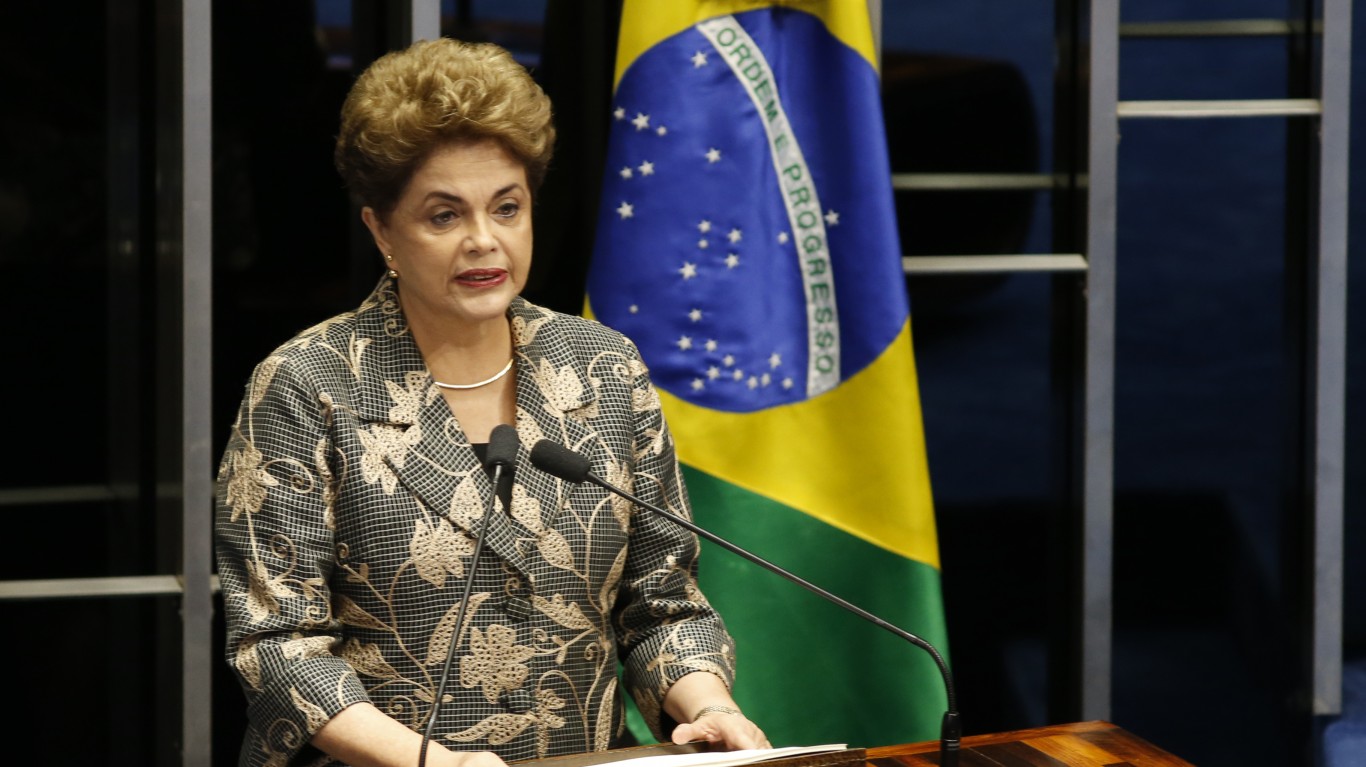
President: Dilma Vana Rousseff
> Country: Brazil
> Date impeached: August 31, 2016
> Removed from office? Yes
Rouseff has the dubious distinction of being the first female president anywhere to be impeached. She was accused of corruption during her stint as head of Petrobras, the state-run energy company, before she became president. She tried to distance herself from the accusations, but she was ultimately impeached by a 61 to 20 vote based on charges that she broke budgetary laws by using funds from state banks to boost public spending.
[in-text-ad]
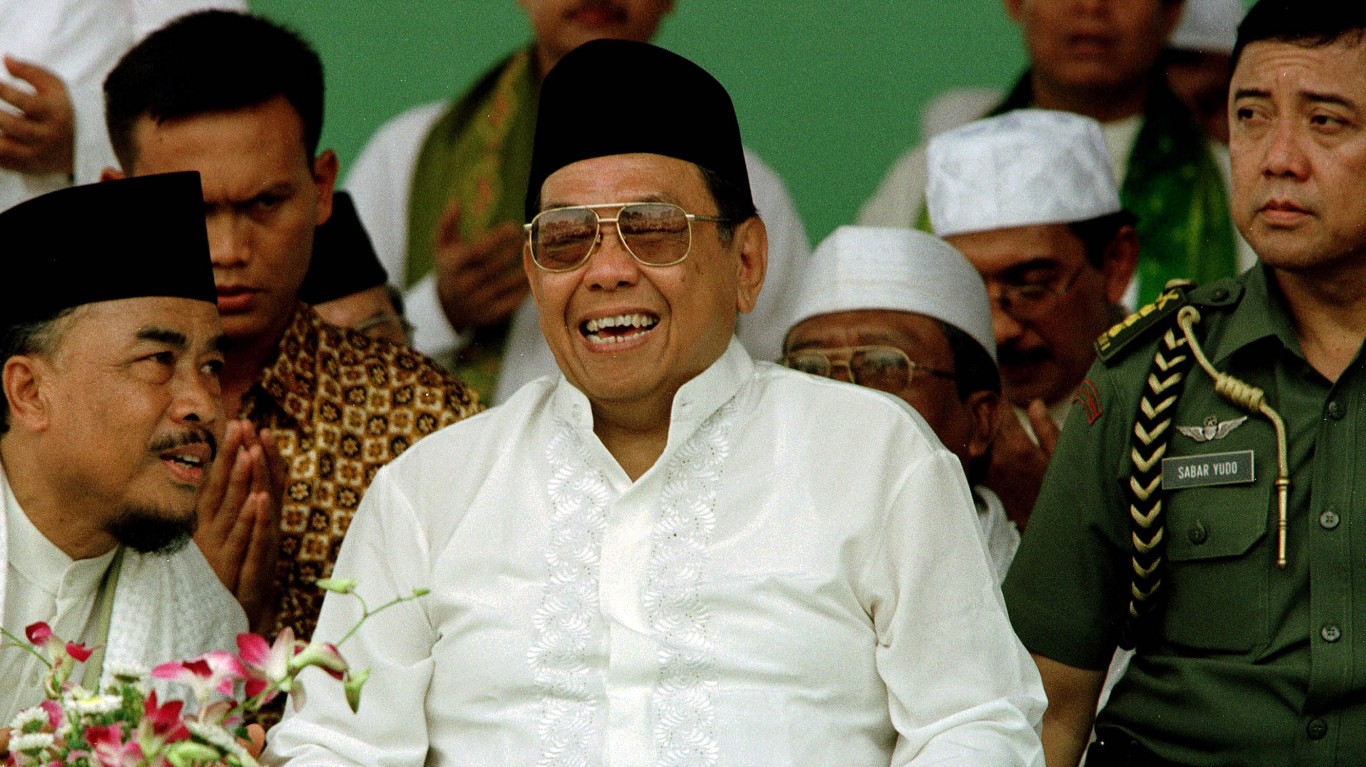
President: Abdurrahman Wahid
> Country: Indonesia
> Date impeached: July 23, 2001
> Removed from office? Yes
Wahid faced numerous accusations of corruption, leading up to the allegation that he had looted as much as $4 million from Bulog, the state-run food agency. Within Indonesia, the scandal was referred to as “Buloggate.” Facing ouster, he sought to declare a state of emergency, but one of his ministers blocked the move and troops surrounded the presidential palace while he was impeached by the legislature.

President: Victor Yanukovych
> Country: Ukraine
> Date impeached: February 22, 2014
> Removed from office? Yes
Yanukovych was initially declared president in 2004, but following accusations of outside interference in the election, he was ousted in favor of Viktor Yushchenko. Yanukovych rebounded, becoming prime minister in 2006 and assuming the presidency again in 2010. He was accused of abusing power in 2013, and early the following year fled to Russia claiming that he feared for his life. Hours later, the Ukrainian parliament voted to impeach him.
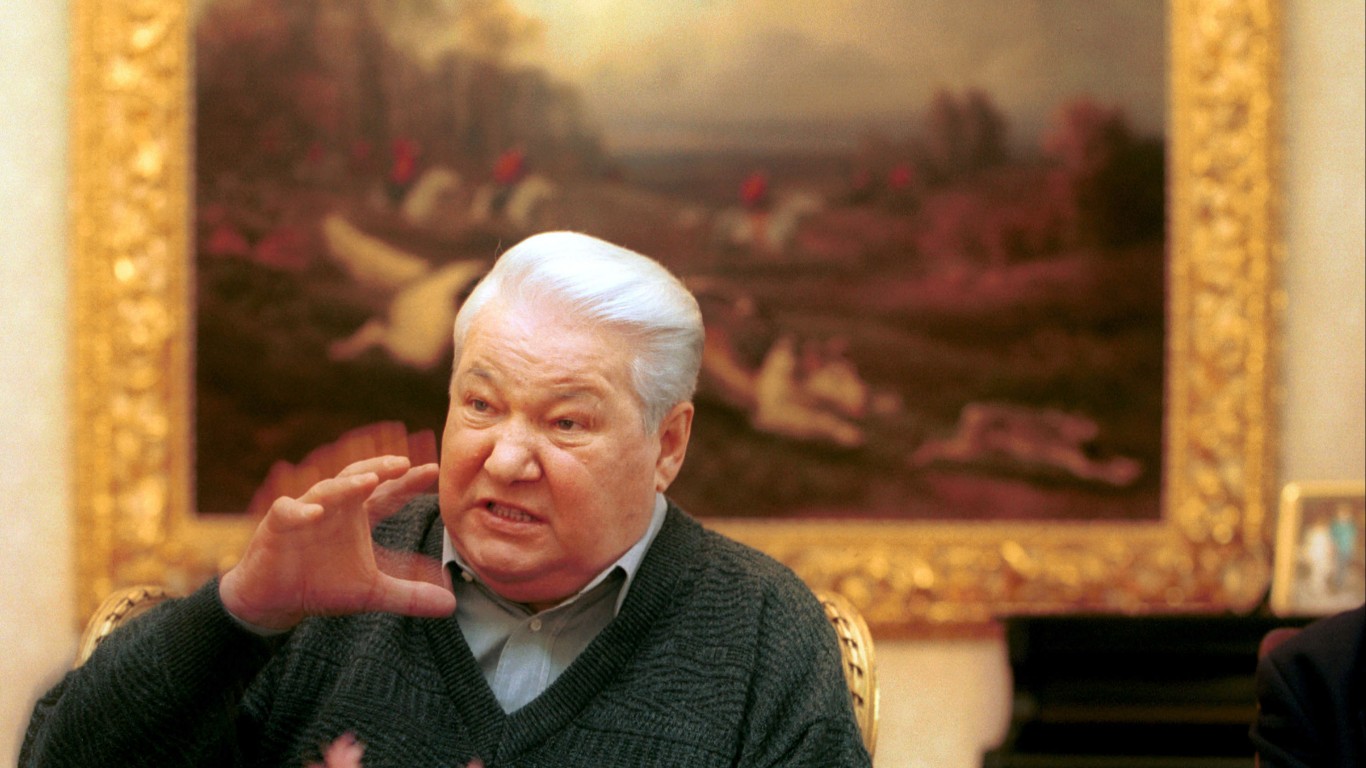
President: Boris Yeltsin
> Country: Russia
> Date impeached: March 28, 1993; September 22, 1993; May 12 to 15, 1999
> Removed from office? No
Yeltsin was elected as the first president of the Russian Federation following the collapse of the Soviet Union in 1991. The Congress of People’s Deputies maintained that his policies were leading the country to economic disaster and in March of 1993 asked the Constitutional Court to impeach him. The motion failed to gain enough votes. Yeltsin went on to dissolve the Congress, an act declared unconstitutional later that year by the country’s new permanent parliament, the Supreme Soviet of the Russian Federation. The Soviet formally expelled Yeltsin from the presidency as a result, but Yeltsin ordered the army to shell and storm the parliament building, and ultimately the Soviet too was dissolved. The final attempt to impeach Yeltsin came in May, when the State Duma, the lowest house of parliament, was asked to vote on five charges against him. None of them gained the requisite number of votes. Yeltsin voluntarily resigned at the end of 1999, appointing Vladimir Putin as his successor.
After two decades of reviewing financial products I haven’t seen anything like this. Credit card companies are at war, handing out free rewards and benefits to win the best customers.
A good cash back card can be worth thousands of dollars a year in free money, not to mention other perks like travel, insurance, and access to fancy lounges.
Our top pick today pays up to 5% cash back, a $200 bonus on top, and $0 annual fee. Click here to apply before they stop offering rewards this generous.
Flywheel Publishing has partnered with CardRatings for our coverage of credit card products. Flywheel Publishing and CardRatings may receive a commission from card issuers.
Thank you for reading! Have some feedback for us?
Contact the 24/7 Wall St. editorial team.